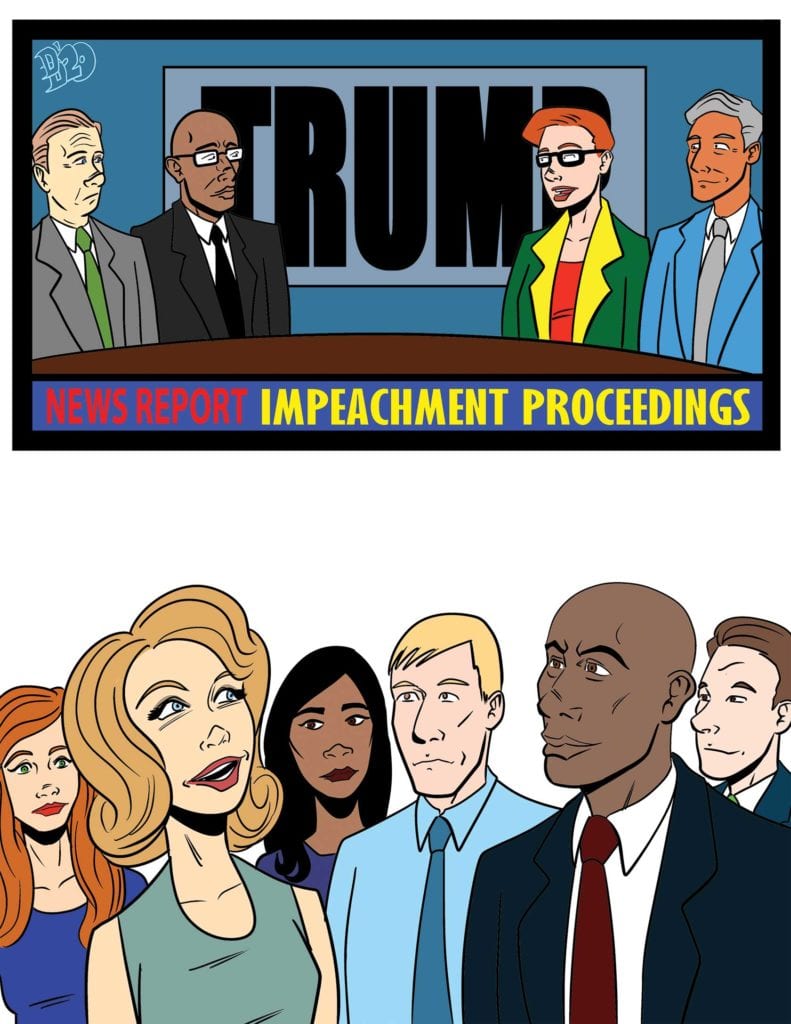
Citizens expect political leaders to be forceful and tend to the people’s problems with dispatch. Unfortunately, that is not the customary pace of officialdom. A more likely process is for a committee to gather to discuss at their pace the issues of special importance to the petitioning citizen. And very often the officials involved will exaggerate the progress of their agency in finding a satisfactory solution.
That is how democracy works. Multiple perspectives have to be considered in order to attain a result that satisfies the committee and offends the fewest number of voters. The nation’s Founding Fathers understood this state of continual controversy, so the Constitution was drafted in a manner to prevent the domination of any of the three institutions of government.
The early colonists who chafed under the absolute dominion of King George III had no intention to provide those autocratic powers to the president of the United States after the Revolutionary War of 1776. The Congress of the United States and the administration of laws that Congress was expected to draft were supposed to be sufficient to constrain the ambitions of a president who is insensitive to the subtleties of an emerging democratic process. Impeachment was the ultimate remedy.
Reference to the Federalist Papers enables scholars to know how Alexander Hamilton, James Madison and John Jay considered the issues that became part of the Constitution. Until the Constitution was ratified in 1787, there were technically no applicable rules governing the new republic.
From the very beginning, negotiation among the 13 colonies that became the United States of America was necessary for the creation of the union. Six states were slave states and seven were free. It was agreed that every state, regardless of the size of its population, would have two U.S. senators. Every 10 years there would be a census to determine each state’s number of representatives, except that slaves would count as only three-fifths of a person to limit the representation in the House.
While the Founding Fathers feared the establishment of a tyrant in the presidency, at the same time they were concerned about the capacity of the average voters to make effective decisions. There was an expectation that the Senate would function as a body of well-educated, upper-class gentlemen.
The wise authors of the U.S. Constitution had a difficult problem. Beyond treason and bribery there were no other stated violations sufficient to justify impeachment to remove an offending president. Impeachment should be judiciously charged because it would essentially overturn the result of a democratic election. The constitutional solution is to define other offenses as “high crimes and misdemeanors” to be ultimately defined by a two-thirds vote of the Senate.
In a civil case, a lawyer would move to dismiss the charges against the defendant if no law has been violated. However, the issue is more complex in an impeachment. Trump has been charged with two violations: abuse of power and obstruction of Congress. It is not enough of a defense to assert that Trump has not broken any laws. The case against him rests on whether he has breached the constitutional requirements of the office of president.
Political differences and administrative flaws are insufficient to justify impeachment. Once the House of Representatives impeaches the president, the U.S. Senate tries the charges to determine whether the president is found guilty. The only penalty is to be removed from office. However, if the president committed crimes while in office, he can be charged once he is no longer president.
Citizens have a civic responsibility to stay well-informed as the impeachment process moves on. A tough leader is desirable, as long as he abides by the Constitution.






